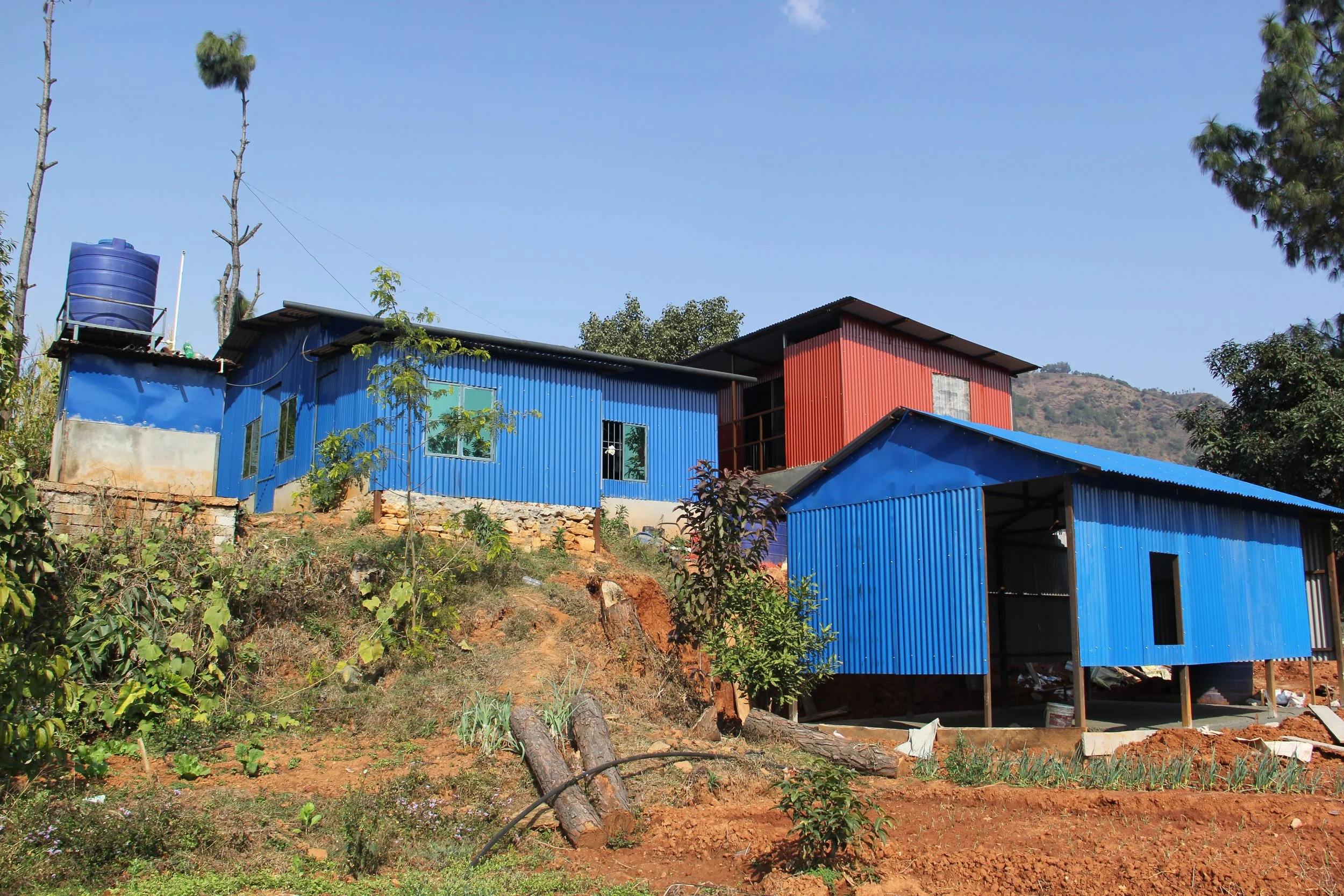by Morgan Phillips (UK Co-Director, The Glacier Trust)
Mandan Deupur Agro Forestry Resource Centre (MD-AFRC) was established by EcoHimal, TGT and the people of Mandan Deupur in 2019. The project was made possible by a three year start-up grant from the Marr Munning Trust. Last year, we secured another three years of funding, this time from Margaret Hayman Charitable Trust Fund.
Progress at MD-AFRC has exceeded expectations. Over 2,000 people have been trained through practical and theory workshops, a schools programme, and one to one on site tuition. Five model organic villages have been established, funds and support from local government have been secured, and For more information on the first three years of this project, please download this five page illustrated summary report. A full detailed report is available on our project reports page.
MD-AFRC have launched into 2022 by starting work on three new buildings. These will expand the AFRC’s infrastructure and provide more space and facilities to meet the growing demand for training and support. Our new volunteer, Amy Wilson, will be visiting MD-ARFC in the coming weeks, she’ll be able to report back in more depth, but we wanted to share some of the photos that EcoHimal have sent us this month - they illustrate the project work that has been going on, as well as the upgrades that are being made to buildings.
Farmers load tree and vegetable seedlings grown and sold by MD-AFRC into their vehicle. These seedlings are grown from seed at MD-AFRC’s plant nursery. The plant nursery forms part of the outdoor classroom at MD-AFRC where farmers attend practical workshops on organic farming, agro forestry, climate change adaptation, and water management.
Crates of ginger harvested from the land surrounding MD-AFRC. The project is supporting farmers to integrate ginger farming, which is very traditional in this area, into their organic agro-forestry plans.
Anisha Kharel from EcoHimal head office visits one of the polytunnels at MD-AFRC. This steel framed polytunnel is an upgrade on the usual bamboo-framed versions that are less resilient to the storms that are hitting Nepal with greater frequency and intensity.
Pictured here are seedlings and saplings that are being tested and introduced to the area by MD-AFRC. Farmers will visit to learn how to grow and care for these plants, and when ready, they will be sold to families who want to grow the crops they have been learning about.
The buildings at Mandan Deupur AFRC. The blue building in the top left of the photo is the original single storey training hall, office, bedroom, and kitchen. The smaller blue building will, when completed, house ‘improved’ livestock species (more information below). The red two-storey red building will provide a new training hall and extra accommodation.
This image shows the new animal shed under construction. MD-AFRC will use this to raise livestock (for example, goats, pigs, or buffalo) and demonstrate to farmers how to seamlessly harvest manure from the shed to help fertilise soils on the vegetable plots below. MD-AFRC will be introducing new breeds to the area that will be bred with the local stock to improve meat and milk production.
Exterior of the new training hall and accommodation building at MD-AFRC. By providing accommodation, AFRC’s are able to offer residential workshops to farmers from neighbouring districts thereby increasing the reach and earning potential of the centre.
Accommodation also means that local farmers attending two day trainings can stay overnight saving them several hours walk and allowing the theory parts of any learning to happen in the evening after sundown. Although not on the tourist trail, it is also possible for MD-AFRC to host tourists interested in the development of organic agro forestry in Nepal.
The new training hall under construction at MD-AFRC, it sits below the new bedrooms and next door to the original training hall, which will be turned into a meeting room.
This hall will be used for trainings by the MD-AFRC, but they will also rent it out to others in the community providing a new source of income to help make MD-AFRC self sustaining.
Two local farmers collect seedlings provided to them by the project at the end of a training workshop at MD-AFRC.
Mandan Deupur AFRC is the second community-led centre of its kind that TGT has established through our partnership with EcoHimal. The original AFRC, in Deusa, Solukhumbu, the Everest region of Nepal, was created in 2013 and has withstood two earthquakes and a pandemic to achieve financial self-sustainability. We have written at length about this in our book ‘Great Adaptations’.
Four more AFRC’s are currently being established by EcoHimal and partners in Khotang (east Nepal), proving the replicability of the model. We are hoping to create AFRCs in other parts of Nepal in the coming years, and possibly over the border into Bhutan!
If you would like to learn more and support our work, please get in touch. We would love to work with you to spread this model further and make climate change adaptation possible for more people and communities as temperatures continue to rise.









